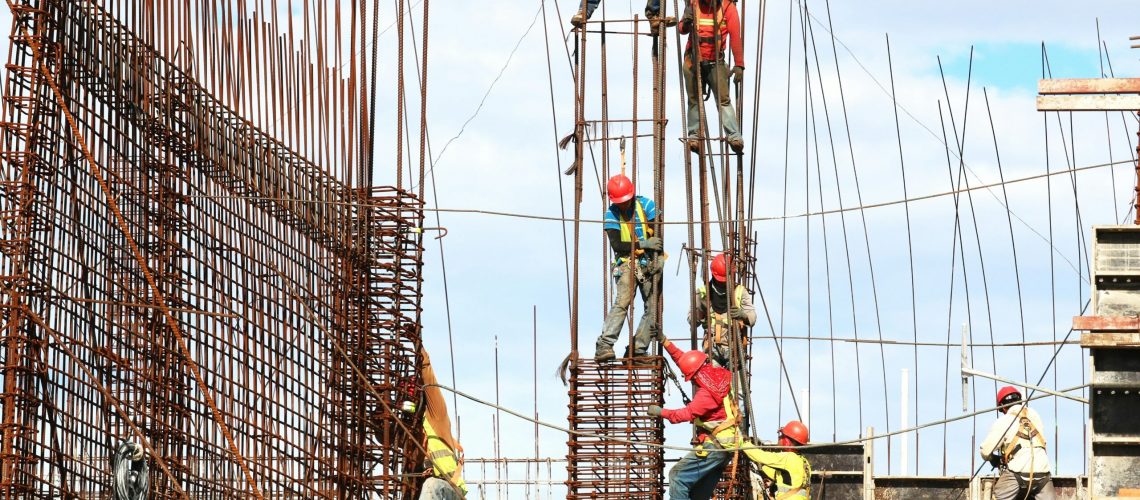Dextrose, a monosaccharide, is an isomer of glucose. Its molecular formula, C₆H₁₂O₆, denotes a simple sugar that is highly soluble in water. This solubility imparts unique properties when dextrose is incorporated into construction materials. Upon incorporation, dextrose can influence the hydration process of gypsum, the primary component of drywall, thereby modifying its crystalline structure. This modification can enhance various performance attributes of the drywall, including its mechanical strength, moisture resistance, and workability.
In addition to its solubility, dextrose’s chemical composition allows it to interact effectively with other compounds within the gypsum slurry. This interaction can lead to the formation of a more stable and durable matrix within the drywall. The presence of dextrose can also facilitate the dispersion of gypsum particles, creating a more uniform mixture that improves the overall quality of the finished product.
Enhancing Mechanical Strength
The inclusion of dextrose in the formulation of drywall can significantly augment its mechanical properties. The interaction between dextrose molecules and gypsum during the hydration process results in a more cohesive and dense crystalline matrix. This dense matrix contributes to improved compressive and tensile strength, making the drywall more resilient to mechanical stresses.
Mechanism of Strength Enhancement
The primary mechanism through which dextrose enhances mechanical strength lies in its ability to act as a retardant in the setting time of gypsum. By controlling the rate of hydration, dextrose ensures a more uniform and thorough crystallization process. This uniformity reduces the incidence of micro-cracks and voids within the drywall, which are common initiation points for structural failure.
Furthermore, dextrose’s role in the retardation process allows for better control over the curing time, providing contractors with greater flexibility during installation. The controlled setting time results in a more predictable and reliable performance of the drywall, reducing the likelihood of premature failure and increasing the lifespan of the structure.
Empirical Evidence
Numerous studies have corroborated the strength-enhancing properties of dextrose in drywall. For instance, a study published in the “Journal of Materials Science” demonstrated that drywall samples with dextrose exhibited a 20% increase in compressive strength compared to those without dextrose. This empirical evidence underscores the potential of dextrose to revolutionize drywall performance.
Additional research has shown that dextrose-enhanced drywall also exhibits superior tensile strength, which is critical for maintaining structural integrity under various loading conditions. These findings are supported by field tests and real-world applications, where dextrose-enhanced drywall has consistently outperformed traditional formulations in terms of durability and resilience.
Moisture Resistance
Moisture ingress is a critical concern in drywall applications, often leading to structural degradation and mold growth. Dextrose can mitigate these issues by enhancing the moisture resistance of drywall.
Hydrophobic Properties
Dextrose imparts hydrophobic properties to the gypsum matrix, reducing water absorption. This is achieved through the formation of a semi-permeable barrier within the crystalline structure, which inhibits the penetration of water molecules. Consequently, drywall with dextrose exhibits lower water permeability and enhanced durability in humid environments.
The hydrophobic properties of dextrose-enhanced drywall also contribute to improved resistance against other forms of moisture-related damage, such as efflorescence and freeze-thaw cycles. These benefits are particularly valuable in regions with high humidity levels or frequent temperature fluctuations, where traditional drywall formulations may struggle to maintain their integrity.
Case Studies
In a practical case study, a construction project in a high-humidity region utilized dextrose-enhanced drywall. The project reported a significant reduction in moisture-related issues, including mold growth and structural weakening, over a five-year period. This case study exemplifies the practical benefits of dextrose in enhancing the moisture resistance of drywall.
Another case study from a coastal construction site demonstrated that dextrose-enhanced drywall maintained its structural integrity and appearance even after prolonged exposure to salty, humid air. These real-world applications highlight the versatility and reliability of dextrose as a moisture-resistant additive in drywall formulations.
Workability and Application
The workability of drywall is a crucial factor in its application, affecting both ease of installation and overall project efficiency. Dextrose contributes to improved workability by modifying the rheological properties of the gypsum slurry.
Rheological Modifications
The addition of dextrose results in a smoother and more homogenous slurry, which facilitates easier mixing, pouring, and spreading. This improved workability not only accelerates the installation process but also ensures a more uniform application, reducing the likelihood of defects and rework.
Moreover, the enhanced rheological properties of dextrose-enhanced drywall allow for better adhesion to various substrates, improving the overall quality of the installation. This can be particularly beneficial in complex architectural designs where precise application and finishing are required.
Field Applications
In field applications, contractors have reported noticeable improvements in the ease of handling and application of dextrose-enhanced drywall. These improvements translate into labor cost savings and enhanced project timelines, further substantiating the practical advantages of dextrose in construction.
Additionally, the enhanced workability of dextrose-enhanced drywall allows for greater versatility in its use, enabling contractors to achieve more intricate and aesthetically pleasing finishes. This adaptability makes dextrose-enhanced drywall an ideal choice for both residential and commercial projects, where high-quality results are paramount.
Sustainability and Environmental Impact
The construction industry is increasingly prioritizing sustainability, and the use of dextrose in drywall aligns with this trend. Derived from renewable sources such as corn, dextrose is biodegradable and environmentally benign.
Renewable Sourcing
Dextrose production leverages the abundant availability of corn, a renewable resource. This contrasts with traditional construction additives derived from non-renewable sources, thereby reducing the overall environmental footprint of drywall production.
The use of renewable resources in dextrose production also supports agricultural economies and promotes sustainable farming practices. By choosing dextrose-enhanced drywall, builders can contribute to a more sustainable supply chain and support initiatives aimed at reducing the environmental impact of construction materials.
Biodegradability
Once incorporated into drywall, dextrose contributes to the material’s biodegradability. This is particularly relevant in the context of construction waste management, where biodegradable materials are increasingly preferred for their reduced environmental impact.
Furthermore, the biodegradable nature of dextrose-enhanced drywall means that, at the end of its life cycle, the material can break down more easily in landfills, reducing the long-term environmental burden. This aligns with the growing emphasis on circular economy principles in the construction industry, where materials are designed to be reused, recycled, or safely decomposed.
Real-World Applications and Future Prospects
The integration of dextrose into drywall formulations has already seen successful applications in various construction projects worldwide. From residential buildings to commercial structures, the benefits of enhanced mechanical strength, moisture resistance, and workability are being realized on a large scale.
Innovations in Drywall Technology
The future of drywall technology is poised for further innovations, with dextrose playing a central role. Ongoing research is exploring the potential of combining dextrose with other bio-based additives to further enhance the performance and sustainability of drywall. Such innovations hold the promise of setting new benchmarks in construction material science.
Additionally, advancements in manufacturing processes are making it easier to incorporate dextrose into drywall formulations, paving the way for more widespread adoption. Researchers are also investigating the potential of dextrose to enhance other construction materials, such as concrete and insulation, further broadening its impact on the industry.
Industry Adoption
As the construction industry continues to embrace sustainable practices, the adoption of dextrose-enhanced drywall is expected to grow. Leading construction firms are already incorporating this advanced material into their projects, driven by the dual imperatives of performance excellence and environmental stewardship.
Moreover, regulatory bodies and industry standards organizations are beginning to recognize the benefits of dextrose-enhanced materials, which could lead to wider acceptance and integration into building codes and guidelines. As awareness of the advantages of dextrose-enhanced drywall increases, it is likely that more builders and architects will seek to incorporate this innovative material into their designs.
Conclusion
The incorporation of dextrose into drywall formulations represents a significant advancement in construction material science. By enhancing mechanical strength, moisture resistance, and workability, dextrose addresses critical performance parameters, making it a valuable additive in modern construction. Furthermore, its renewable sourcing and biodegradability align with the industry’s shift towards sustainability. As research and innovation continue to advance, the role of dextrose in drywall performance is set to expand, heralding a new era of high-performance, sustainable construction materials.
In summation, the multifaceted benefits of dextrose in drywall underscore its potential to transform construction practices, offering a compelling solution for engineers, architects, and builders committed to excellence and sustainability. As the industry evolves, dextrose-enhanced drywall is poised to become a cornerstone of modern construction, driving progress towards a more resilient and environmentally conscious built environment. If you’re exploring the potential of Dextrose in your own projects, Noah Chemicals is here to help. Our expertise and high-quality products can support your renewable energy initiatives, ensuring that you have the materials you need to succeed. Contact us today!





